第5章 A STREET IN ANGLEBURY - A HEATH NEAR IT - INSIDE T
'I have guessed. I have many times told myself that your early life was superior to your position when I first met you. I think I may say without presumption that I recognize a lady by birth when I see her, even under reverses of an extreme kind. And certainly there is this to be said, that the fact of having been bred in a wealthy home does slightly redeem an attempt to attain to such a one again.'
Ethelberta smiled a smile of many meanings.
'However, we are wasting words,' he resumed cheerfully. 'It is better for us to part as we met, and continue to be the strangers that we have become to each other. I owe you an apology for having been betrayed into more feeling than I had a right to show, and let us part friends. Good night, Mrs. Petherwin, and success to you.
We may meet again, some day, I hope.'
'Good night,' she said, extending her hand. He touched it, turned about, and in a short time nothing remained of him but quick regular brushings against the heather in the deep broad shadow of the moor.
Ethelberta slowly moved on in the direction that he had pointed out.
This meeting had surprised her in several ways. First, there was the conjuncture itself; but more than that was the fact that he had not parted from her with any of the tragic resentment that she had from time to time imagined for that scene if it ever occurred. Yet there was really nothing wonderful in this: it is part of the generous nature of a bachelor to be not indisposed to forgive a portionless sweetheart who, by marrying elsewhere, has deprived him of the bliss of being obliged to marry her himself. Ethelberta would have been disappointed quite had there not been a comforting development of exasperation in the middle part of his talk; but after all it formed a poor substitute for the loving hatred she had expected.
When she reached the hotel the lamp over the door showed a face a little flushed, but the agitation which at first had possessed her was gone to a mere nothing. In the hall she met a slender woman wearing a silk dress of that peculiar black which in sunlight proclaims itself to have once seen better days as a brown, and days even better than those as a lavender, green, or blue.
'Menlove,' said the lady, 'did you notice if any gentleman observed and followed me when I left the hotel to go for a walk this evening?'
The lady's-maid, thus suddenly pulled up in a night forage after lovers, put a hand to her forehead to show that there was no mistake about her having begun to meditate on receiving orders to that effect, and said at last, 'You once told me, ma'am, if you recollect, that when you were dressed, I was not to go staring out of the window after you as if you were a doll I had just manufactured and sent round for sale.'
'Yes, so I did.'
'So I didn't see if anybody followed you this evening.'
'Then did you hear any gentleman arrive here by the late train last night?'
'O no, ma'am--how could I?' said Mrs. Menlove--an exclamation which was more apposite than her mistress suspected, considering that the speaker, after retiring from duty, had slipped down her dark skirt to reveal a light, puffed, and festooned one, put on a hat and feather, together with several pennyweights of metal in the form of rings, brooches, and earrings--all in a time whilst one could count a hundred--and enjoyed half-an-hour of prime courtship by an honourable young waiter of the town, who had proved constant as the magnet to the pole for the space of the day and a half that she had known him.
Going at once upstairs, Ethelberta ran down the passage, and after some hesitation softly opened the door of the sitting-room in the best suite of apartments that the inn could boast of.
In this room sat an elderly lady writing by the light of two candles with green shades. Well knowing, as it seemed, who the intruder was, she continued her occupation, and her visitor advanced and stood beside the table. The old lady wore her spectacles low down her cheek, her glance being depressed to about the slope of her straight white nose in order to look through them. Her mouth was pursed up to almost a youthful shape as she formed the letters with her pen, and a slight move of the lip accompanied every downstroke.
There were two large antique rings on her forefinger, against which the quill rubbed in moving backwards and forwards, thereby causing a secondary noise rivalling the primary one of the nib upon the paper.
'Mamma,' said the younger lady, 'here I am at last.'
A writer's mind in the midst of a sentence being like a ship at sea, knowing no rest or comfort till safely piloted into the harbour of a full stop, Lady Petherwin just replied with 'What,' in an occupied tone, not rising to interrogation. After signing her name to the letter, she raised her eyes.